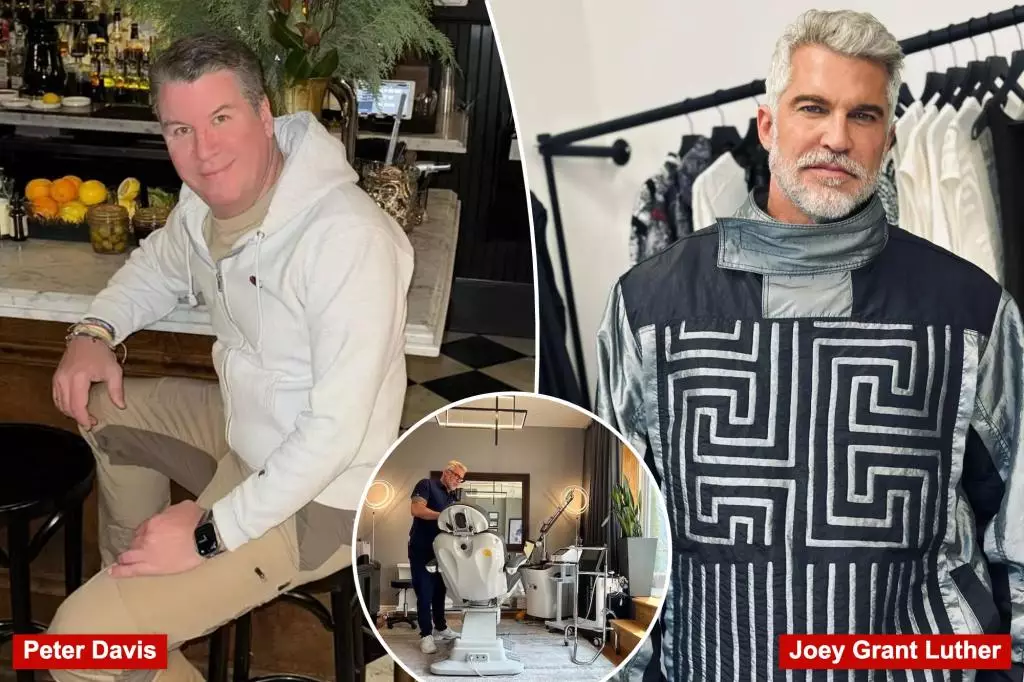The world of cosmetic enhancements is often revered for its ability to boost confidence and alter perceptions of beauty. However, beneath this glimmering surface lurks a darker reality, as recently highlighted by the scandal surrounding Joey Grant Luther, a so-called “skin doctor” who administered counterfeit Botox to his unsuspecting clientele. This incident serves as a cautionary tale that underscores the dire consequences of prioritizing aesthetics over safety and the importance of vigilance in an industry rife with both innovation and deception.
Luther’s practice, operating under the name JGL Aesthetics, positioned itself as a go-to destination for those seeking cosmetic treatments. However, recent investigations revealed that Luther was not only unqualified to administer Botox but was also distributing products sourced from dubious origins. A release from the U.S. Attorney’s Office for the Southern District of New York was alarming, detailing that at least one patient suffered from severe health complications, including a hospital stay due to botulism. It raises critical questions about health safety regulations and the responsibilities of practitioners in this booming industry.
Despite the warning signs, many of Luther’s clients were drawn to him by promises of affordability and results that matched their aspirations. This case points to a growing trend where individuals prioritize low-cost options over the qualifications and standards that ensure their safety. In Davis’s case, he jokingly reflected on his close call with misdiagnosed migraines, using humor to mask the underlying fear and regret many of Luther’s former clients now share. The allure of a youthful appearance facilitated by attractive pricing often blinds individuals to the risks involved, proving that beauty has both its price and its perils.
In the wake of such a scandal, those affected have sought solace in camaraderie. The formation of the “Former Lutherans” group chat symbolizes not only a collective grappling with betrayal but also a step toward healing. Participants are reportedly exchanging information about legitimate practitioners, fostering a sense of community where they can turn their shared trauma into a constructive forum for support and recovery. This group is illustrative of a broader social phenomenon where individuals look to one another for guidance in times of uncertainty, forming networks of trust in an often unregulated environment.
The image painted by the socialites now grappling with the fallout is one of shock and betrayal. Known for their privilege and access to resources, many of these individuals find themselves confronting an uncomfortable truth: not even they were immune to deception. This revelation compels a reevaluation of elitism in beauty standards and the lengths people will go to achieve an ideal, raising the question of whether the high costs often associated with luxury treatments can truly guarantee safety.
Aside from personal ramifications, the implications of Luther’s actions reverberate throughout the communities he served, particularly within the gay community — a significant demographic of his clientele. As reported by sources close to the scenario, the scandal has left many feeling both violated and vulnerable. The notion that a trusted figure could turn out to be unlicensed and unscrupulous shakes the very foundation of trust that clients place in practitioners.
Moreover, the prevalence of services such as penis enlargements offered by Luther raises ethical questions about the moral compass guiding cosmetic practitioners. If personal aesthetics can lead to exploitation, the holistic implications for mental health must also be examined. Do such services contribute to damaging self-perceptions or amplify the desire for external validation that many grapple with? The consequences extend far beyond physical health, touching on emotional and psychological well-being.
As the repercussions of this scandal unfold, a clarion call emerges for greater advocacy and responsibility within the cosmetic treatment industry. Rigorous licensing requirements, thorough vetting of practitioners, and educational outreach to clients are vital steps in preventing future occurrences of such deception. Moreover, creating awareness around the dangers of counterfeit products is paramount in safeguarding public health.
As Joey Grant Luther faces serious charges, the focus now must turn to the implications of his actions, bearing witness to a sobering reality in the pursuit of beauty. The fallout from this incident encourages a critical examination of personal choices and industry standards alike, advocating for a more informed consumer base empowered to protect themselves against potential harm. Ultimately, it’s a reminder that while beauty may be on the surface, the quest for it should never come at the cost of safety and integrity.

